7 Surprising Benefits of Chess for Student Learning
Not very many educational tools and activities rival chess when it comes to the multifaceted benefits students can reap from it. It’s often said that chess is a “game of kings.” It is so much more than this, however: in fact, an effective educational tool full of cognitive, emotional, and social benefits makes it quite invaluable as an addition to any student’s experience. The impact of chess does not stop in the classroom and chess has manifold benefits for the students in ways relating to academic performance, personal growth, and social intercourse.
It enhances critical thinking, improves problem-solving skills, and increases memory, thereby providing all the necessary mental tools so that a student can perform well in studies. It also enhances creativity and patience, teaching students to think strategically towards challenges and to be patient through all odds. More than this, chess promotes concentration and focus, allowing students to remain attentive and engaged in their schools.
The cognitive benefits of chess for students extend even to the key social and emotional gains. Playing chess can help improve the student’s social skills since the process is usually associated with interaction among peers and mentors. This exposes him to develop better communication and interpersonal skills, boosting his confidence and community feeling.
As we delve into the specific benefits of chess with respect to students, you will discover just how this immortal game can transform the learning experience. Here are seven astounding advantages that chess has over student learning, proving the importance of chess as an educational tool:
- How does chess improve problem-solving skills in students?Chess enhances problem-solving skills by challenging students to analyze complex situations, develop strategic plans, and anticipate their opponent’s moves. This process helps students practice critical thinking and apply logical reasoning, which translates into better problem-solving abilities in academic and everyday contexts.
- In what ways does chess boost memory in students?Playing chess improves memory by requiring students to remember and apply various strategies, openings, and patterns. Regular practice helps enhance both short-term and long-term memory, as students recall past games, recognize patterns, and retain complex information related to the game.
- How can chess enhance concentration in students?Chess requires sustained focus and attention, as players must concentrate on the board, their own strategies, and their opponent’s moves. This prolonged focus helps students improve their ability to concentrate for extended periods, benefiting their academic tasks and overall productivity.
- Can chess really boost creativity in students?Can chess really boost creativity in students?
- How does playing chess increase patience and perseverance in students?Chess teaches students patience and perseverance by requiring them to wait for the right moments to execute their strategies and persist through challenging positions. This experience helps students develop resilience, manage frustration, and stay committed to their goals, both in chess and in other areas of life.
- What role does chess play in enhancing critical thinking skills?Chess enhances critical thinking by requiring students to analyze complex situations, evaluate different perspectives, and make reasoned decisions. The game’s strategic nature helps students develop the ability to think critically, plan strategically, and solve problems effectively in academic and personal contexts.
- How does chess improve social skills in students?Chess improves social skills by providing opportunities for students to interact with peers, mentors, and opponents in various social settings. The game fosters communication, sportsmanship, and collaboration, helping students build confidence, empathy, and strong social relationships.
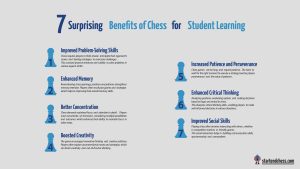
-
Improved Problem-Solving Skills
One of the strongest advantages chess can offer to a student is drastically increasing problem-solving skills. Chess is an intrinsically strategic and foreseeing game where players move through complicated situations and make wise decisions. Since every move in chess forms a different challenge, this continuous mental workout transfers directly into academic problem-solving and daily life.
-
Strategic Thinking :
Chess sharpens strategic thinking. Students have to think several steps in advance, contemplating plans for themselves and probable counteractions of their opponent. This foresight and planning develop the capacity to undertake complex problems in mathematics and science, where prediction of outcomes and dynamics of interdependent variables play a vital role. Equipped with regularity in such strategic thinking, students begin to approach their academic challenges more analytically.
-
Analytical Skills :
The game of chess enhances analytical thinking. While evaluating the various positions on the board, students have to consider numerous strategies for their respective strengths and weaknesses. This analytical approach sharpens their ability to dissect complex problems into manageable components, which is very useful in research and problem-based learning environments. For example, considering a mathematical problem to be solved, the student shall apply the same analytical techniques in breaking down such a problem to identify the best solution.
-
Decision-Making Abilities:
Chess is a game of decisions. Every move requires the weighing of a lot of options and predicting the consequences. Students learn from this how to make good decisions while under pressure—balancing risks and rewards. Such improved decision-making skills are useful in academic settings where quick, informed decisions may affect outcomes—for instance, in timed tests or in project management.
-
Adaptability and Flexibility:
Chess will help you in your flexibility and adaptability since students need to adjust their strategy given the game dynamics. This extends into academic scenarios where students often need to adjust their approach as new information changes the nature of the problem or deadlines shift. In adjusting their strategies about chess, they will become more versatile thinkers who can deal with unexpected changes with greater ease.
-
Critical Evaluation:
Another key characteristic of chess problem-solving is critical evaluation. In most cases, students will go through their moves and try to see how effective the various strategies adopted have been. It is this reflective practice that makes them more adept at critically evaluating their own work and thereby making necessary improvements. This translates into students refining their essays, reports, and research projects by a critical look at the content and the consequent revision of the same in academics.
-
Real-Life Application:
The problem-solving abilities one attains from chess are not limited to the chessboard. They find practical applications in real life. For example, in students who are adept at solving problems through chess, there is evidence of preparation for situations on the ground, as in planning a project, managing time, or dealing with conflicts. It becomes part of personal development, and it enables them towards future academic and professional challenges.
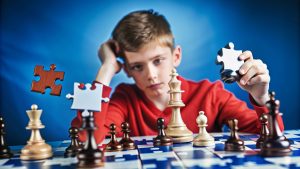
-
Enhanced Memory
Chess is not only a strategy-and-intellect-oriented game; it also forms a very potent exercise for better memory. These mental demands of chess involve short-term and long-term memory together, thus having a great impact on the cognitive development of a student. The next section provides in more detail how chess improves memory and the various ways by which this benefit manifests:
-
Short-Term Memory Improvement:
In chess, one needs to remember the position of all pieces on the board, trace their movement, and recall what was done in the previous moves. Continually remembering various things in one’s head enhances one’s short-term memory. This developed short-term memory will be helpful for students when recalling information during lectures or tests, or when they are studying. In chess practice, players enhance their memory of different positions and strategies that help a person’s mind to increase its ability to store and retrieve information efficiently and quickly.
-
Long-Term Memory Development:
Long-term memory is significant in the retention of information over long periods. Chess makes a great contribution to this cognitive function. While playing and studying chess, children learn openings, tactics, and endgame strategies—indeed, they memorize them. The repeated exposure to these patterns helps cement them in long-term memory. This process of repeated practice and recalling embeds a strong memory network that can also be of assistance in retaining and recalling information in academic subjects. For instance, playing chess enhances long-term memory, and this will help one remember complex historical events, scientific concepts, or themes of literature.
-
Pattern Recognition:
Chess is filled with patterns: from opening variations to defensive setups, intricate tactical combinations. Thus, the capacity for recognizing these patterns involves the recall of similar positions and situations from previous games. The ability to recognize patterns and relationships is helpful for the student in, say, mathematics, where pattern recognition is paramount if solution and conceptual understanding are to be attempted. In this way, it enhances the skills of pattern recognition for the student to fully understand complex subjects and to better solve problems.
-
Visual Memory Enhancement:
Chess improves visual memory since it requires a player to remember the position of different pieces on the board and should be able to project any movement that might be entered. Improved ability to remember visual information and manipulate it in one’s mind allows better performance with visual-spatial skills like reading maps, interpreting graphs, or working with diagrams. Improved visual memory will particularly aid in subjects like geometry and science where interpretation and retaining visual representations is crucial.
-
Cognitive Flexibility:
Another benefit to memory improvement from chess is cognitive flexibility, which means the ability to switch from one topic or perspective to another. When playing chess, students develop the ability to handle several cognitive tasks when they deal with a number of strategies and alternate plans based on the opponent’s moves. This gives them the cognitive flexibility to become more efficient in handling several subjects and tasks or projects at the same time. This will also help students adjust to new information and new scenarios within an academic subject.
-
Stress Reduction and Memory Function:
It also improves memory function by reducing stress. Since chess is a very focused and at the same time enjoyable activity, it reduces the level of stress, which again has positive effects on memory. With lower stress levels, there comes better concentration and more efficient functioning of cognitive abilities, hence enhancing the ability of the student to retain and recall information. Therefore, chess indirectly supports memory by providing a constructive way of channeling stress.
-
Practical Applications:
The memory skills built up through chess can be translated into reality in students’ lives. Improved memory facilitates performance in class as one can easily recall whatever is taught for examinations and assignments. Besides, strong memory skills are helpful in daily life by way of remembering appointments, responsibility, and social interaction.

-
Better Concentration
Attention/concentration is one of the most important factors for academic success and personal development, and chess is a very handy tool for developing that pertinent skill. Being complex by itself, chess requires an intense and unwavering focus; hence, it is excellent practice toward developing concentration. This paper will go on to discuss precisely how chess enhances better concentration and the spillover effects on students:
-
Extended Focus:
One of the primary features of chess has to do with the requirement of long-term concentration. Contrary to many other activities that might demand a momentary block of attention, chess requires a player to focus on the game for a longer period. Each move is critically made in consideration of potentially disposable strategies, possible outcomes, and tactics by the opponent. This sustained attention trains the students to remain focused on something for a longer period, which helps them in carrying out similarly intensive tasks in academics: reading, writing, and solving problems. The more students are habituated to proper concentration while playing chess games, the more they can carry this intensification of focus to their studies and other responsibilities.
-
Attention to Detail:
Chess requires extreme attention to detail. The player needs to memorize each piece that is on the board, what part it plays in his current strategy, and where and when it will move. This keeps them prepared to notice and remember minute details in their academic work. For example, in subjects like mathematics and science, where precision is the prime requirement, the student with a high degree of attention to detail is less likely to make errors and thus can solve problems more accurately.
-
Minimizing Distractions:
Chess gives students the ability to block out all distractions and focus on one thing at a time. The engrossing nature of the game requires one to block out external disturbances and focus solely on the strategic aspects of the game. This skill in the reduction of distractions carries over into an academic classroom. Students will acquire how to create an environment conducive to study, avoiding multitasking, and focusing their entire attention on what they are working on academically. This increased focus potentially is going to help one memorize things more effectively and therefore do well in assignments and other exams.
-
Mental Discipline:
Playing chess improves mental discipline since the players are forced to adhere to a specific strategy and remain focused on their operations. This discipline enhances the student’s capacity for following through with tasks and resisting the temptation to give in to distracters. In the classroom, mental discipline helps manage time, satisfies deadlines, and adheres to projects that have long time frames. Via the regular practice of chess, students gain mental stamina to remain focused in the process of keeping up with their academic interests.
-
Strategic Thinking and Planning:
Hence, to play chess well, one has to look ahead, formulate a strategy, and, in so doing, reinforce the ability of students to keep a clear eye on long-term goals and how those can be broken down into manageable steps. On an everyday basis, say when working on a research project or studying for a major exam, the strategic thinker knows exactly how to schedule study sessions and set milestones, keeping his or her focus on the end goal. It is this ability to plan and concentrate on long-term goals that will be very helpful both for school success and personal development.
-
Stress Management:
Effective concentration is also connected to the possibility of stress management. Chess allows for the opportunity for students to experience stress management by engaging in a challenging yet enjoyable activity. With this exercise, through deep levels of concentration for the game, levels of stress are decreased as students improve overall ability in concentration. Lower levels of stress increase cognitive functioning and raise the ability to focus on schoolwork. A daily routine that involves playing chess offers both improved focus and some stress relief.
-
Real-Life Applications:
The enhanced concentration acquired through chess playing is very relevant in daily student life. In school, they can focus more on the lectures, study time, and examinations. With improved concentration, students will manage their time well, be efficient in completing tasks at hand, and remain productive in many activities outside the classroom. Moreover, strong concentration skills set the base for better performance in extra-curricular activities like sports, music, and leadership.
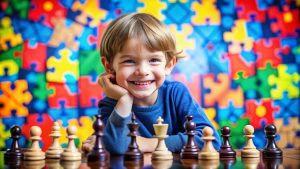
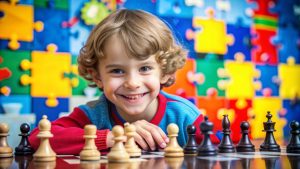
-
Boosted Creativity
While chess is admirably touted to be one of the most strategic games in the world, it turns into a strong catalyst for enhancing creativity. Thus, the richness of complexity in the game and the requirement of solution-finding through innovation grow the creativity beyond the chessboard. Following is an in-depth look at exactly how chess stimulates creativity and its effect on the young learner:
-
Encouraging Innovative Thinking:
Inherent in the game of chess is the need to invent different strategies and then change them in the process of the game. With every move, many new ideas, even unrealized ones, can suddenly appear. The need to create and adapt in chess boosts the creativity of students. During the process of finding a way out from a difficult position, players train themselves to think creatively and originally; this kind of habit is useful in academic subjects and in solving real problems.
-
Developing Strategic Imagination:
One of the critical elements involved in playing chess is to imagine a set of situations and outcomes. Players have to visualize the after-effects of their moves and strategies of their opponents. This exercise in strategic imagination helps develop students’ ability to think creatively about complex problems. For instance, in the subjects of literature and history, learners who have better-developed strategic imagination can apply this sort of ability when going through texts and historical events with more subtlety and novelty of viewpoint, thus producing richer analyses and interpretations.
-
Fostering Adaptability:
In general, creativity incorporates the ability to adjust or change ideas in the light of new information or change in circumstances. Chess makes the thinking of the student flexible as they continuously readjust the strategy based on what the opponent is doing. Such adaptability fosters creativity by pushing students to view problems from many angles and come up with dynamic solutions. This adaptability helps students to approach projects and assignments in a more creative and open-minded way for more original and effective results within academic settings.
-
Enhancing Problem-Solving Skills:
Creativity and problem-solving are closely linked, and chess helps to enhance them. This sharp belief in creative solutions to complex positions translates into enhanced problem-solving skills. Thus, students learn how to approach problems with a creative mindset: examining possibilities for effectiveness. Such enriched abilities in problem-solving would be very useful in academic topics that require original thinking, like design, engineering, or the sciences. Playing chess sharpens these creative problem-solving skills; therefore, it easily helps students come up with original ideas and tackle any problems.
-
Promoting Lateral Thinking:
Lateral thinking, or out-of-the-box thinking, is an integral part of creativity. Chess helps to develop lateral thinking by putting the player into unusual positions with non-standard problems. Students are going to have to look for the non-traditional approaches, search for non-linear solutions that will let them succeed in chess. Such exercise of lateral thinking later spreads into other fields of life, including education and creative tasks. Students who are good at lateral thinking mostly tend to generate more ideas, come up with more creative solutions, and look at tasks differently.
-
Inspiring Artistic Expression:
Chess has some relation to artistic expression because it is a domain that deals with the mingling of creativity and skill. The strategic depth and beauty of the game inspire students to create several types of art. Many students who are actively involved with chess end up doing chess-related drawing, storytelling, or other creative work. This nexus between chess and art goes on to demonstrate how this game can provoke students to engage themselves and bloom their creative talents in a variety of ways.
-
Encouraging Risk-Taking:
Creativity normally involves risks and the examination of new ideas. Chess gets students to take calculated risks by examining bold and unusual moves. Risks taken in playing chess will foster a mindset toward academic and creative risks as well. Only students who are comfortable taking risks will try new approaches, challenge conventional thinking, and pursue innovative projects. It is this risk-taking attitude that will increase their overall creativity and raise them as inventive thinkers.
-
Building Confidence:
Confidence belongs to the most salient elements of creativity, and chess can be very helpful in building it. While chess skills are developing, students gradually increase their confidence in themselves as creative thinkers and actors. Such increased confidence spills over into other areas of life, empowering a person to tackle creative projects and academic challenges with greater assurance. A more confident student is going to become more creative, try out risks, explore new ideas, and strive for innovative solutions.
-
Increased Patience and Perseverance
Of all games in the world, which seems to be running after quick results and instant gratification, chess is the only one that inherently positions patience and perseverance at its core. The slow and deliberate nature of chess, with complex strategies at times requiring long-term planning, makes it an exceptional tool for developing these very important qualities. Following is a detailed exploration of how chess fosters increased patience and perseverance in students, and why these traits are invaluable:
-
Understanding the Nature of the Game:
It is a game of great strategy and long play. Fast games or activities are quite contrasting to chess, which requires one to plan many moves in advance and to strategize each of them accordingly. Due to this intrinsic nature, chess demands that a player be patient—waiting for the appropriate time to do something and waiting for the opponent’s action in return. The fact that focus and calmness are required during periods of long play helps to inculcate a mentality of patience, which is transferable to many other areas of life.
-
Learning to Wait for the Right Moment:
Success in chess generally depends on patiently waiting for the right time to implement what has been planned. Sometimes players have to go through opening, middle game, and endgame phases of the game only with patience. Each one of them needs careful thinking and time. Students learn patience since rushing a decision or quickly moving may prove to be bad. This timing and patience transform into their academic and personal lives in the notion that waiting for the right time to do things results in better outcomes and careful decision-making.
-
Developing Resilience Through Challenges:
Challenges in chess—starting from a strong, principal, constant flow of problems to objectively speaking, very good opponents—present, among others, each a test of perseverance for chess players to sustain efforts in trying to get around them or to learn from the mistakes and perform better. Students learn to view setbacks and defeats as a natural phase of the game; persistence is key. It is this very type of resilience that breeds a sense of determination and grit to hang in there with regards to overcoming academic or personal struggles, among others, for which students will be motivated.
-
Building Long-Term Goals:
Chess deals with setting and working towards long-term goals, for example, checkmating an opponent or gaining strategic advantages. Most of the chess moves require strategies that require the end in mind but several steps and a considerable amount of time to complete. In this way, students go through the process of appreciating the value of long-term goals and working hard to attain them. Whether it is the pursuit of academic excellence, completion of a grueling project, or attaining personal milestones, patience and perseverance developed through chess support students in the fulfillment of their long-term aspirations.
-
Enhancing Focus and Discipline:
Greater patience and perseverance in chess are closely connected with more focused and better-disciplined players. One has to be focused on the game, try not to get distracted, and be very committed to one’s strategies. This focus and discipline are developed through regular practice and readiness to put in time and work into improving one’s skills. Through chess, students develop traits that enable them to focus on their studies, adhere to deadlines, and become more disciplined toward their academic and personal responsibilities.
-
Overcoming Frustration and Adversity:
Chess teaches how to be patient when one meets frustration or a negative situation. Students will understand that a lost game or being in a weak position may get frustrating, but they will deal with it patiently and work through it. They realize that frustration is an opportunity to learn something new. In class, this ability to overcome frustration and adversity pays dividends in times of trouble. Through patience and perseverance learned in chess, one faces the challenge with a positive attitude and will to win.
-
Fostering a Growth Mindset:
Working through a hard position, trying to play better chess, induces a growth mindset. Students come to realize that abilities can be created, as opposed to being just nature’s gift. This type of mindset will tell them how to approach a problem: with an attitude of mastering it rather than with the fear of failure. Besides, students who hold this kind of mindset will be more likely to embrace challenges and seek opportunities for growth in the academic and personal domains, persisting in the face of difficulties.
-
Practical Applications:
These virtues of enhanced patience and perseverance acquired from chess playing find practical applications in the lives of students. One sees the traits making them take a long-term perspective toward studies at school, use their time wisely, and stay dedicated. In personal and professional life, patience and perseverance underpin problem-solving, setting goals, and the ability to surmount any obstacles. Students can use the patience and perseverance that are acquired in chess to realize their goals, whether it is to improve a personal interest, serve in the community, or find a job after graduation.

-
Enhanced Critical Thinking
Critical thinking should be developed as the skill that shapes much of academic and personal life. It is the ability to analyze any information and arguments, then make reasoned decisions. Chess can therefore serve as an excellent vehicle for enhancing such critical thinking skills, given its complex strategies and deep cognitive demands. This paper looks at detailed explanations of how chess enhances critical thinking and explores the effects it has on learners.
-
Analyzing Complex Situations:
Chess, intrinsically, is a game of complex decision-making. Every move is accompanied by the analysis of the current position on the board, the estimation of potential strong and weak points of various plans, and the prediction of possible responses from the opponent. This act of analyzing complex situations sharpens a student’s mind to break down intricate problems into manageable components. This transfers into classroom situations where it enhances one’s ability to analyze complex texts, scientific data, or mathematical problems and reach more nuanced and informed conclusions.
-
Evaluating Multiple Perspectives:
In playing chess, one has to consider your view and that of your opponent. A player will need to consider several moves played and then look at how each move will affect the game and come up with the best action. Such exercising by considering several perspectives strengthens the skill of gazing at problems from several angles. It is also an important element in the establishment of well-rounded arguments, literature analysis from different perspectives, and problem-solving, adopting a holistic approach in academic circles.
-
Strategic Planning and Foresight:
Chess requires players to think several moves ahead and then plan their strategies accordingly. In this strategic planning, the consequences of each move can be foreseen and thus prepare for many possible events. The development of planning skills and ability to foresee the outcome builds strategic thinking and ability to foresee in a student. This is a fundamental ability useful in academics and real life when long-term planning and preparing for future challenges are called for. For example, students in project management or research use strategic planning to outline steps, anticipate any possible challenges, and work out effective solutions.
-
Problem-Solving Under Pressure:
Critical thinking occurs quite frequently in chess, especially when playing faster games or participating in time-limited tournaments. In such tournaments, players are supposed to make quick decisions while evaluating intricate board positions and possible results. Such practice in solving problems under pressure will help students develop an enhanced capacity to think critically and make reasoned choices under heavy pressure. Many tasks within the academic environment are performed under pressure, such as exams and assignments, where maintaining presence of mind to think critically and come up with a quick but viable solution is paramount.
-
Reflective Thinking:
In chess, most players go through replays of the game, analyzing the moves and strategies and learning from their mistakes. This is reflective thinking in its application toward the betterment of the game and the generation of new strategies. Similarly, students can reflect upon their academic performance, noticing how well they do, finding out what has gone wrong, and working at improving on them. Doing this will cultivate critical thinking and a growth mindset.
-
Pattern Recognition:
Chess is a game of patterning—memorization of recognizable openings, tactical motifs, and endgame strategies. It is in this acquisition of skill of pattern recognition that chess should be able to crystallize students’ critical thinking to learn how to identify recurring themes in their experiences and apply learned concepts in new situations. It will help them be more agile in other disciplines, such as mathematics, science, and literature, with problem-solving, identification of trends, and making sense of complex information.
-
Decision-Making Skills:
Critical thinking embodies the characteristic of effective decision-making, and chess sharpens this through the process of evaluating alternatives to decide on the best move. In doing so, a player must evaluate the pros and cons of each move that can be made, immediate and long-term, and then make decisions in support of that strategy. This decision-making skill developed through chess enables learners to become better critical thinkers who can make more informed and valid decisions academically and in their personal lives.
-
Developing Hypothesis Testing:
Chess players often test hypotheses about what their opponent intends to do or what strategy the opponent has chosen. For example, a chess player might try one or two moves to gauge the opponent’s response to the action in order to adapt their strategy. Through this testing and experimentation process, this enhances students’ critical thinking since it equips one with how to formulate, test, and revise hypotheses in different contexts. This is critical to arriving at accurate and well-supported conclusions in both academic research and problem-solving, where hypotheses can be subjected to testing and refinement of approaches.
- Real-Life Applications:
The critical thinking developed through chess has practical applications in many spheres of life. This critical thinking is empirically transferred to the classroom to provide better analyses of complex subjects, better ways of handling problems, and better decision-making. Such skills are invaluable to a person both personally and professionally for strategic planning, good communication, and consequently, the confidence to sail through complexities. Whether it’s higher education, project management, or any other crucial phase of life’s decisions, it is the critical thinking skills brought to a sharp edge through chess that really help students.
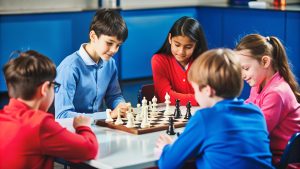
-
Improved Social Skills
Although chess may be considered a game of individualism, it holds much value in terms of increasing better social skills. The social nature of the game, besides other forms of interaction it creates, helps students develop important social skills. Here is an in-depth analysis of how chess contributes to improved social skills and what this does for students:
-
Fostering Positive Social Interactions:
Chess often brings people together, whether in formal tournaments, casual clubs, or just informal games. Interactions of this nature are what give students opportunities to be with others who are of the same interest. Such shall improve in students the skills of communication, relation-building, and social engineering. Students develop social skills in chess clubs or chess events by engaging with peers, mentors, and opponents in a structured setup.
-
Learning Sportsmanship and Respect:
One of the chief social elements that chess confers on students is sportsmanship. Graceful win or loss is an inherent part of the game. Students learn to respect opponents, appreciate their efforts, and win or lose with grace. This kind of emphasis on sportsmanship generates respect and regard for others, a character trait quite critical in building and fostering positive social interaction within any framework, be it class interactions or extra-curricular activities.
-
Building Confidence Through Interaction:
Involvement in chess tournaments or club activities will boost the confidence of students. It is by participating in competitive settings and successful social interactions that students derive a feeling of achievement and self-confidence. Growing in confidence, one develops better social relations and develops the basis for expression both in formal and non-formal environments. This makes it easier for a confident student to engage in meaningful conversation and develop strong relationships toward social activities and academia.
-
Developing Communication Skills:
Through chess, one can clearly spell out his or her strategy and intention to, for example, discuss tactics with a mentor or explain moves to a fellow player. Such acquired communication skills are easily transferred to other areas in life. Students playing chess get involved in the clear articulation of thoughts, active listening, and constructive dialogue. Consequently, they are able to communicate effectively in their social interactions, making them better at working in teams, representing ideas, and engaging in discussions.
-
Cultivating Empathy and Understanding:
Playing chess involves knowing the opponent’s perspective, their expected moves, and readjusting strategies based on their actions. This type of practice of being in another’s viewpoint helps the student learn to be more understanding and empathetic. When you learn to think ahead about others’ needs and perspectives, you allow yourself to connect better with others. This sort of empathy goes a long way in building stronger relationships, settling disagreements, and treading through social issues with sensitivity and self-awareness.
-
Encouraging Teamwork and Collaboration:
While chess is often played individually, there are many chess activities where teamwork and collaboration are involved. This includes team tournaments, chess clubs, and group lessons that require students to work together, share information, and motivate one another. These experiences teach the student that collaboration, cooperation, and mutual support are essential. It is in this setup that they learn to work effectively as a team, contribute to the group effort, and value others’ contributions—very important skills for successful social interaction and any activities to be carried out.
-
Navigating Social Hierarchies:
Students are involved in chess clubs and tournaments where they mix with a number of different age brackets, classes of players, and backgrounds. This exposes them to various social hierarchies or dynamics, thereby teaching students how to go about diverse social environments. In the process of meeting other players with skills or experience higher or lower than theirs, character building is achieved through emulating behaviors of varied social behavior, respect, and interrelation with others from walks of life different from their own. The exposure to different social settings increases their relation-building capacity with and interaction skills toward large sections of people.
-
Managing Social Anxiety:
For students with social anxiety, chess has an atmosphere that is very organized and, hence, conducive to practicing social interaction. Intellectual challenge and strategic thinking involved in the game lower the emphasis on social performance, hence making it easier for students to engage with others without feeling pressure. By regularly engaging in chess activities, such students are able to build gradual social confidence and coping strategies against anxiety. This increased comfort in social situations extends beyond the chessboard to include their overall social interactions.
-
Building a Sense of Community:
One of the benefits of chess is that it creates bonding among those players. Be it a chess club locally, forums online, or participating in international tournaments, students began to network with others who shared their enthusiasm for the game. Being part of this community provided emotional support, encouragement, and peer support from others with similar interests. Students have lasting friendship-building experiences and feel connected to others through meaningful social interactions.
Conclusion
The benefits of chess can have on a student are deep and wide-ranging. Involving chess in the school curriculum would, therefore, have various advantages for the learners or students. The game enhances cognitive skills but also social, patience, and creative abilities. It basically creates a balanced educational experience with much more beyond traditional ways of learning. It can turn out to be a very strong tool for all-round development, as improving the students’ and players’ interest in chess significantly improves them as a whole—classroom and personal.
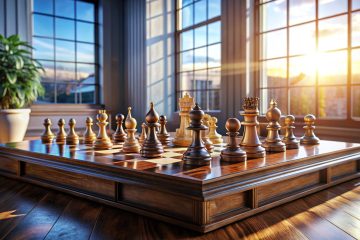
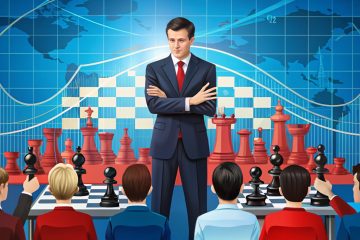
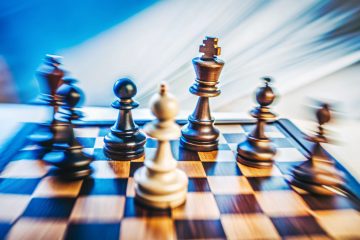
0 Comments